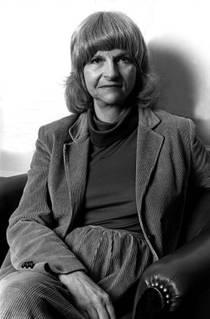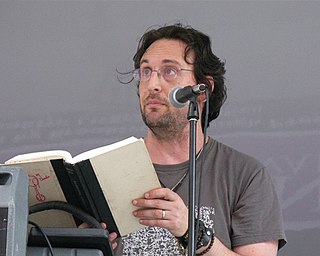A Quote by Charles Colson
Great fiction can often present moral messages with greater power and clarity than instructional writing - since literature, after all, penetrates not just the intellect, but the imagination.
Related Quotes
The written word is weak. Many people prefer life to it. Life gets your blood going, & it smells good. Writing is mere writing, literature is mere. It appeals only to the subtlest senses—the imagination’s vision, & the imagination’s hearing—& the moral sense, & the intellect. This writing that you do, that so thrills you, that so rocks & exhilarates you, as if you were dancing next to the band, is barely audible to anyone else.
Science fiction is the branch of literature that deals with the effects of change on people in the real world as it can be projected into the past, the future, or to distant places. It often concerns itself with scientific or technological change, and it usually involves matters whose importance is greater than the individual or the community; often civilization or the race itself is in danger.
I probably spend more time writing than reading science fiction. I find that science-fiction literature is so reactive to all the literature that's gone before that it's sort of like a fractal. It's gone to a level of detail that the average person could not possibly follow unless you're a fan. It iterates upon many prior generations of iterations.
Imagination, it turns out, is a great deal like reporting in your own head. Here is a paradox of fiction-writing. You are crafting something from nothing, which means, in one sense, that none of it is true. Yet in the writing, and perhaps in the reading, some of a character's actions or lines are truer than others.
I hate to see great works of literature ghettoized, whereas others that conform to the rules, conventions, and procedures of the genre we call literary fiction get accorded greater esteem and privilege. I also have a problem with how books are marketed, with certain cover designs and typefaces. They're often stamped with an identity that has nothing to do with their effect on the reader.
In a sense, journalism can be both helpful and detrimental to a writer of fiction because the kind of writing you need to do as a journalist is so different. It has to be clear, unambiguous, concise, and as a writer often you are trying to do things that are more ambiguous. I find that writing fiction is often an antidote to reading and writing too much journalism.
The region belonging to the pure intellect is straitened: the imagination labours to extend its territories, to give it room. She sweeps across the boarders, searching out new lands into which she may guide her plodding brother. The imagination is the light which redeems from the darkness for the eyes of the understanding. Novalis says, 'The imagination is the stuff of the intellect' -affords, that is, the material upon which the intellect works.




































